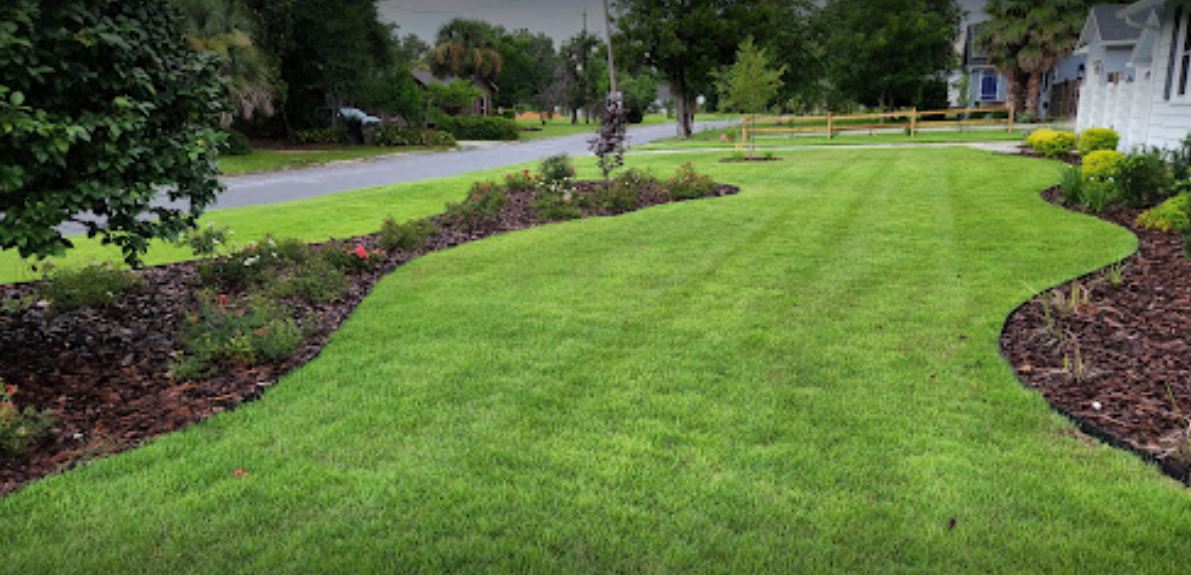
Best Summer Landscaping Practices in Northwest Florida: A Guide by A Cut Above Landscaping
When the summer season arrives in Northwest Florida, it brings with it beautiful sunny days and vibrant landscapes. However, the scorching heat and humidity can pose challenges for maintaining a healthy and thriving landscape. As the leading landscaping experts in the region, A Cut Above Landscaping is here to guide you through the best summer landscaping practices to keep your outdoor spaces looking lush and inviting all season long.
During the summer months, watering your lawn and plants effectively is crucial. Install an efficient irrigation system or sprinklers to ensure that your landscape receives the right amount of water. Schedule watering early in the morning or late in the evening to minimize evaporation and maximize absorption. Aim for deep watering sessions rather than frequent shallow watering to encourage deeper root growth and drought resistance.
2. Choose Drought-Tolerant Plants
Selecting the right plants for your Northwest Florida landscape is essential for surviving the summer heat. Opt for native and drought-tolerant plant species such as lantana, coreopsis, and agave. These plants are adapted to the local climate and require less water and maintenance. Incorporating succulents and ornamental grasses into your design can also add texture and visual interest while being resilient in the summer heat.
3. Mulch for Moisture Retention
Applying a layer of organic mulch around trees, shrubs, and flowerbeds is a simple yet effective way to retain moisture in the soil. Mulch helps to regulate soil temperature, suppress weeds, and reduce evaporation. Choose organic mulches like wood chips, straw, or shredded bark. Apply a layer of about 2-3 inches, ensuring that the mulch doesn't touch the trunks or stems of plants to prevent rot.
Maintaining a healthy lawn requires extra attention during the summer months. Mow your grass at the recommended height for your specific turf type to encourage deeper root growth and shade the soil, reducing evaporation. Avoid mowing during the hottest parts of the day to prevent stress on the grass. Regularly inspect your lawn for signs of pests, diseases, and weed growth, and take prompt action if necessary.
5. Implement Smart Landscaping Design
Strategic landscaping design can help create shade, reduce heat buildup, and optimize the use of water resources. Incorporate trees, shrubs, and trellises strategically to provide shade for outdoor living spaces and reduce the cooling demand indoors. Place potted plants strategically around patios and decks to create microclimates and provide visual appeal. A professional landscape designer from A Cut Above Landscaping can help you create a sustainable and functional outdoor oasis.
6. Prune with Care
Proper pruning is important for maintaining healthy plants during the summer season. Remove dead or damaged branches, and trim back overgrown foliage to improve air circulation and prevent diseases. However, avoid heavy pruning during extremely hot periods, as it can cause stress to plants. Consult with our experts at A Cut Above Landscaping for guidance on the right pruning techniques for your specific plants.
Summer can be a time of increased pest and weed activity. Regularly inspect your landscape for signs of pests such as aphids, scale insects, and whiteflies. Consider using integrated pest management techniques that minimize the use of chemicals and promote natural pest control methods. Apply weed control measures to keep unwanted vegetation from competing with your plants for water and nutrients.
8. Sustainable Watering Practices
Conserving water is not only environmentally responsible but also cost-effective. Consider collecting rainwater in barrels or installing a rain garden to capture and utilize rainfall. Grouping plants with similar water needs together can significantly reduce water waste. Additionally, implementing a drip irrigation system is a smart choice for sustainable watering practices. Drip irrigation delivers water directly to the plant's root zone, minimizing evaporation and ensuring efficient water usage.
Summer landscaping practices, Northwest Florida landscaping, A Cut Above Landscaping,
University of Florida Nine Principles of Friendly Landscaping
